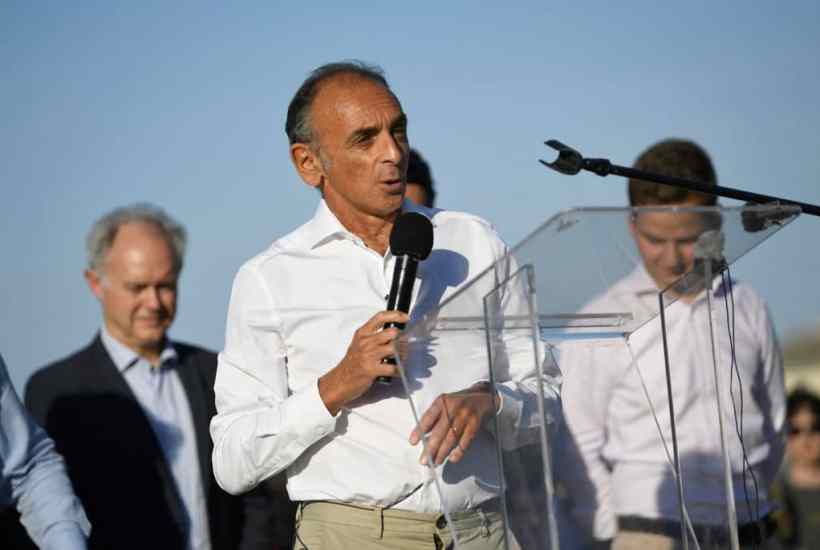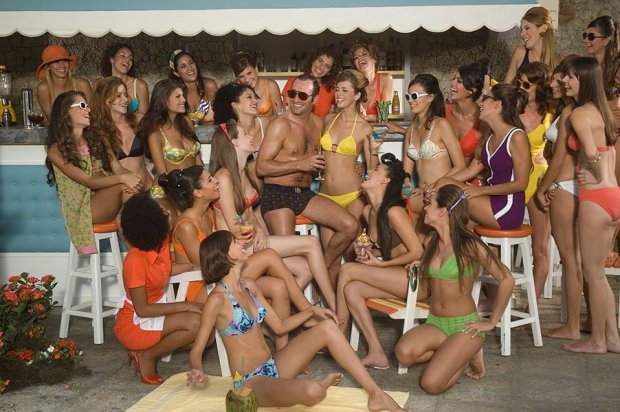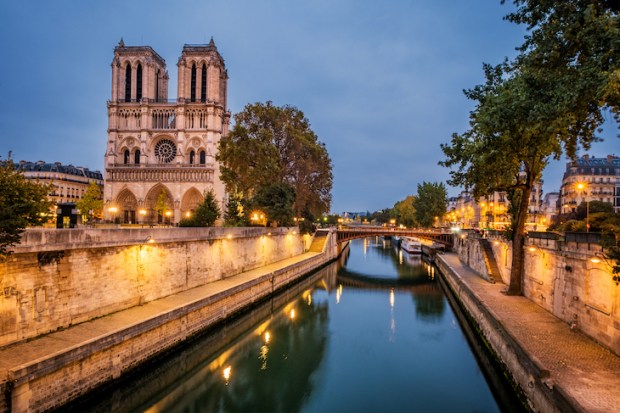Here we go again. Exhausted by a presidential campaign that ultimately produced the same choice as in 2017 (and the same result), French voters go to the polls again on June 11 and June 18 to vote for their National Assembly. Quite possibly with the same results as last time. The denizens of the Café de la Paix are not mesmerised. Abstention is likely to be high.
To call it a singular election is to immediately mislead. It’s not one election but 577 of them. It’s democracy, but not especially edifying. Ultimately more than 8,000 candidates are likely to stand from left, right and centre along with the usual rag-tag of animal rights activists, monarchists, Frexiteers and greens. But this will be narrowed down in the second round of voting, mostly to a choice between candidates loyal to re-elected president Macron, and more radical insurgents from the left or right. Leaving the centre lane wide open for the president and his allies.
The polling is not claimed even by the pollsters to be especially predictive. ‘It is an election more complicated to analyse than the presidential election,’ acknowledges Bruno Jeanbart, vice-president of OpinionWay. Robust individual polls in each constituency are impossible. Many results will be influenced by local issues. Harris Interactive nevertheless estimates that the Macronist alliance is likely to be the big winner with between 300 to 350 seats, reduced from 2017, but enough.
This time the difference is likely to be that the opposition will be dominated by the left, not the centre right, and certainly not by the squishy left of the Socialist party, which was crushed in April, and has reluctantly thrown in its lot with the more seriously leftist alliance assembled by Jean-Luc Mélenchon, that might win as many as 150 seats.
The right, as in April, is hopelessly divided between the Rassemblement National of Marine Le Pen, standing for a constituency in the north; Eric Zemmour of Reconquête, who is offering himself to voters in Saint Tropez, and whose political movement is running 500 candidates; and the soft-centred right of Les Républicains, also crushed in April, who will be lucky to gain more than 30 to 40 seats from the wealthier suburbs.
Zemmour it’s assumed has chosen the most fertile ground possible for his own candidacy, but he has an impossible mountain to climb. Zemmour won 14.7 per cent of the vote in the first round of the presidential election here, compared to 32.2 per cent for Marine Le Pen and 24.1 per cent for Emmanuel Macron.
After his collapse in the presidential vote to just 7 per cent, Reconquête will be lucky to win more than a handful of seats, if any.
In the run-up to the presidential voting, it was Zemmour who sucked up much of the oxygen of the campaign but this time it’s Mélenchon who is being bigged up by the media, which is using a familiar playbook to paint him as an extremist, which he is.
‘The truth about Mélenchon,’ is the cover line of this week’s centrist newsweekly Le Point, not even pretending to be even-handed. He is described as ‘an economic charlatan and Europhobe with a taste for dictators.’ Jean-François Kahn, a left-wing journalist, who loathes Mélenchon, is equally acerbic.
‘At the end of last year, Zemmour was the darling of the audiovisual galaxy. He was the only one seen. Mélenchon has momentarily become the darling of the same media archipelago. He is the only one heard. Who, then, confronts him with his guilty indulgences towards other worst authoritarian regimes, here and elsewhere, yesterday or today? Hardly anyone.’
Le Pen, who finished second in April on her third attempt at the Elysée, could still take between 50 to 80 seats as attention is diverted to Mélenchon.
Why do these no-hopers even bother? The stampede of candidates illustrates a particularity of the French political system which is that more than 40 per cent of the resources of the political parties are paid for by taxpayers. Half the subsidies depend on the number of deputies and senators attached to each party. The other half is based on the number of votes received in the first round of legislative elections, provided that 50 candidates (in mainland France) receive at least 1 per cent of the votes cast. Every vote earns the party about €1.50 per year for five years. Even if the candidate loses. Hence the motivation to offer lots of candidates whose only job is to win a tiny fraction of the votes because the money flows whether or not the candidate wins. It’s democracy, French style. Even if a party loses, it wins, just by showing up. And the voters pay.
Got something to add? Join the discussion and comment below.
Get 10 issues for just $10
Subscribe to The Spectator Australia today for the next 10 magazine issues, plus full online access, for just $10.




















Comments
Don't miss out
Join the conversation with other Spectator Australia readers. Subscribe to leave a comment.
SUBSCRIBEAlready a subscriber? Log in